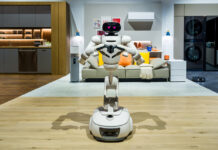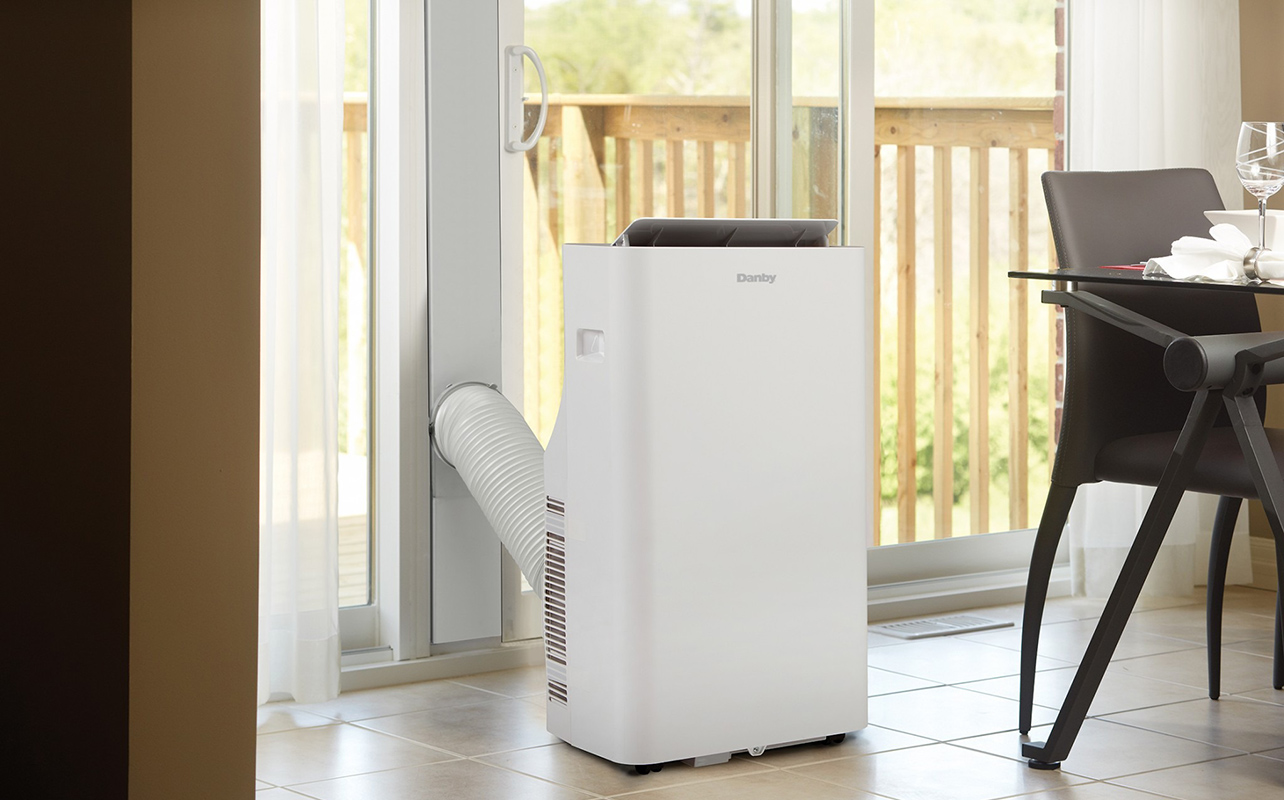
There’s nothing more frustrating than turning on your air conditioner during a sweltering summer day only to find it’s blowing warm air or, worse, not turning on at all. Whether you have a central system, a window, or a portable unit, an air conditioner not working can throw your entire day off. But before you panic or call a technician, know that many air conditioner problems have simple solutions you can try at home.
In this guide, we’ll walk you through common AC issues, explain what might be going wrong, and help you figure out what to do next. Whether your central AC is not cooling or your portable or window air conditioner is not working, we’ve got you covered.
Signs your air conditioner isn’t working properly
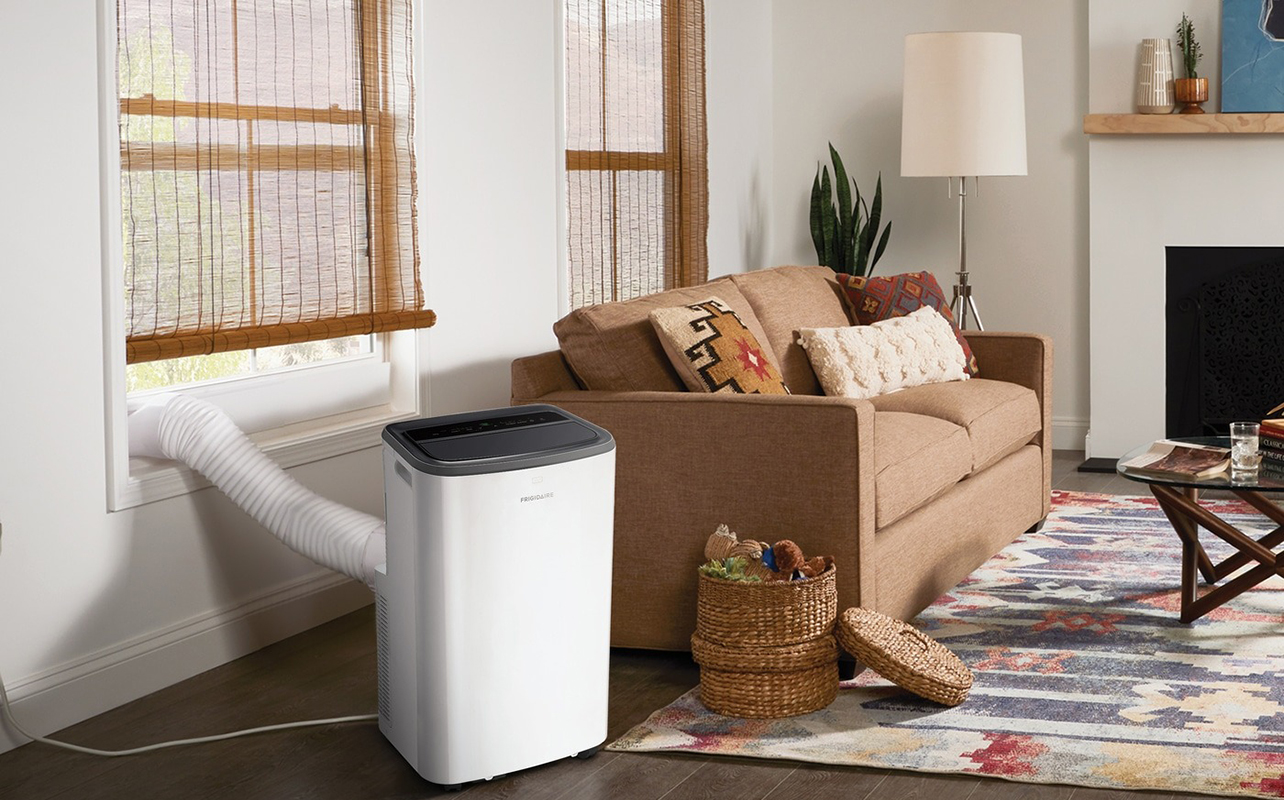
You might notice your air conditioner behaving strangely or just not keeping your space comfortable. Here are the most common red flags that something isn’t quite right:
Not cooling
The most obvious sign: your AC is on, but the air coming out isn’t cool or it’s barely cooler than room temperature.
Weak airflow
Even if the air is cool, you might notice it’s barely blowing out of the vents. This could indicate a blockage, dirty filter, or a fan issue.
Strange noises or smells
Banging, buzzing, or rattling sounds can point to mechanical problems. Musty or burnt smells could indicate mould, overheating parts, or wiring issues.
Unit won’t turn on
If your AC won’t start at all, it could be due to power supply issues, a tripped breaker, or a malfunctioning thermostat.
Common causes of air conditioner problems
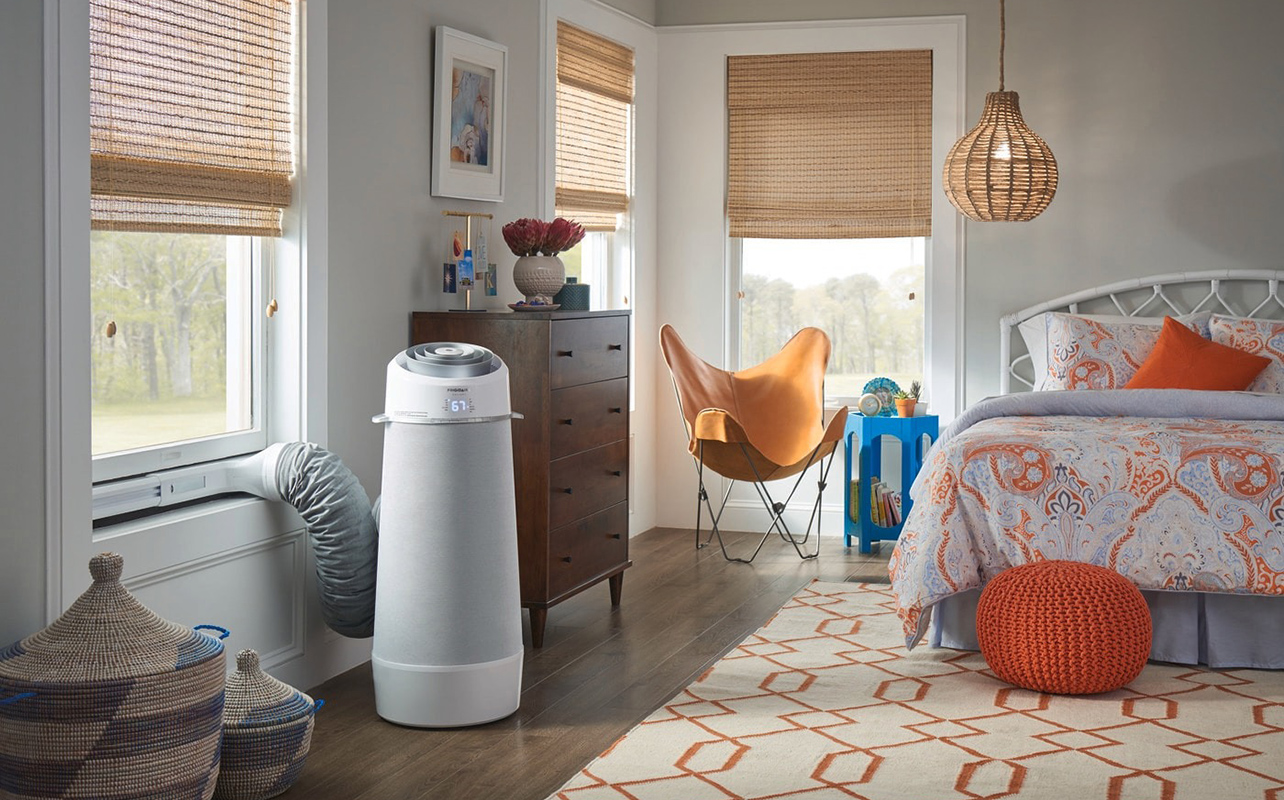
Many air conditioner issues are easy to fix once you understand what’s causing them. Here are some typical culprits behind your air conditioner not working:
Thermostat issues
Sometimes, it’s not the AC, it’s the thermostat. Double-check that it’s set to “cool” and that the temperature is lower than the room’s current temperature. Dead batteries or faulty wiring could also be to blame.
Dirty filters or coils
A clogged air filter can restrict airflow, while dirty evaporator or condenser coils can reduce your unit’s cooling efficiency. Cleaning or replacing these regularly can help your AC breathe and perform better.
Blocked vents or ducts
Furniture, curtains, or debris can block airflow from your vents. In ducted systems, closed or damaged ducts may reduce cooling to certain rooms.
Electrical problems or blown fuses
A tripped circuit breaker or blown fuse is a common reason your AC isn’t turning on. Be sure to check your electrical panel before assuming something more serious is wrong.
Low refrigerant
Refrigerant is the liquid that absorbs heat and cools your home. If your system is low, it likely has a leak. This isn’t something you can fix yourself, and you’ll need a licensed HVAC technician.
Why your central AC is not cooling
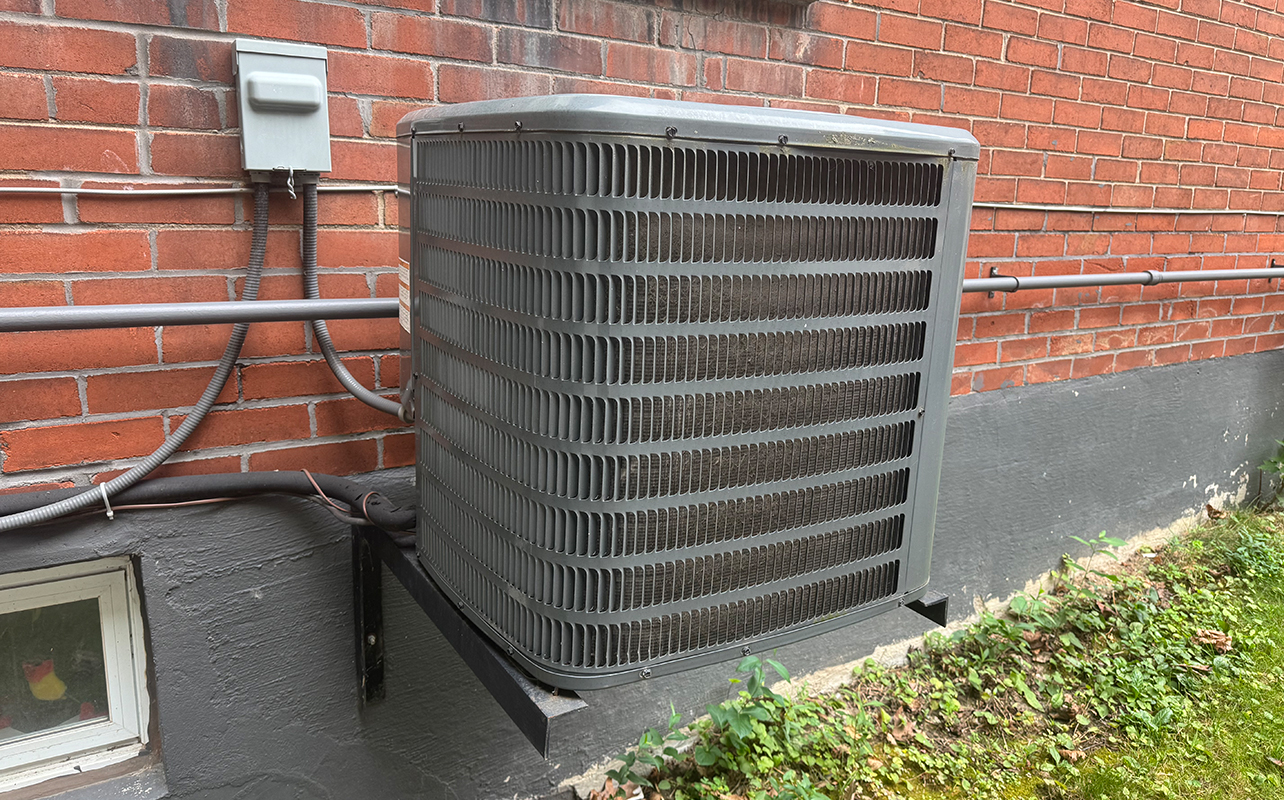
If you’ve noticed your central AC is not cooling, these specific issues might be at play:
Faulty compressor
The compressor is the heart of your system. If it fails, your AC won’t be able to circulate refrigerant, which means no cooling. Unfortunately, this often requires professional repair or replacement.
Clogged drain lines
Central AC units produce condensation, which needs to drain properly. If the drain line is clogged, it could trigger a safety shutoff or lead to water damage.
Frozen evaporator coils
When airflow is restricted or refrigerant is low, coils can freeze up, causing your system to blow warm air or shut down altogether. Turning the system off and letting it thaw can help. Just don’t forget to fix the root cause.
Dirty outdoor condenser unit
If the outdoor unit is covered in leaves, dirt, or debris, it can’t expel heat effectively. Gently cleaning it with a garden hose (with the power off) can improve performance.
Need help with diagnosing central air conditioning issues? Check out this guide on common central AC problems and fixes.
Portable air conditioner not working? Here’s what to check
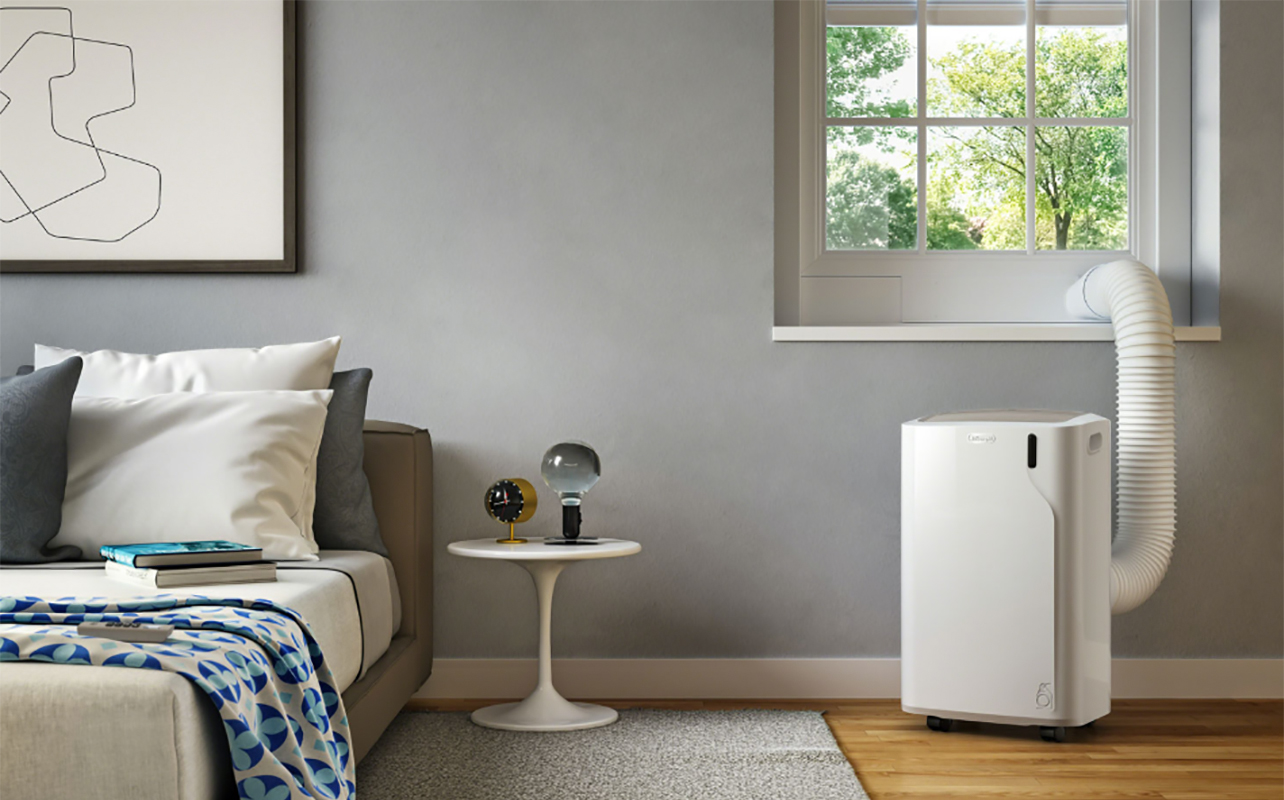
Portable air conditioners are great for cooling specific rooms, but they can run into problems, too. If your portable air conditioner is not working, here are a few things to look at:
Exhaust hose issues
The hot air your unit removes needs to go somewhere and that’s usually out a window via an exhaust hose. Make sure the hose is properly connected, not kinked, and venting out a window as intended.
Improper ventilation
Portable units need adequate space around them to function. If they’re jammed in a corner or too close to walls, airflow gets restricted, which can cause overheating.
Full condensate tank
Most portable ACs collect water from the air. If the condensate tank is full, the unit may shut off. Drain it regularly or check if your model supports continuous drainage.
Tripped circuit breaker
Just like central systems, portable units can trip a breaker if overloaded. Reset the breaker and avoid plugging the unit into overloaded power strips.
For more on how portable units stack up against other cooling options, read our guide to choosing between portable, window, and mini-split air conditioners.
Quick AC fixes you can try at home
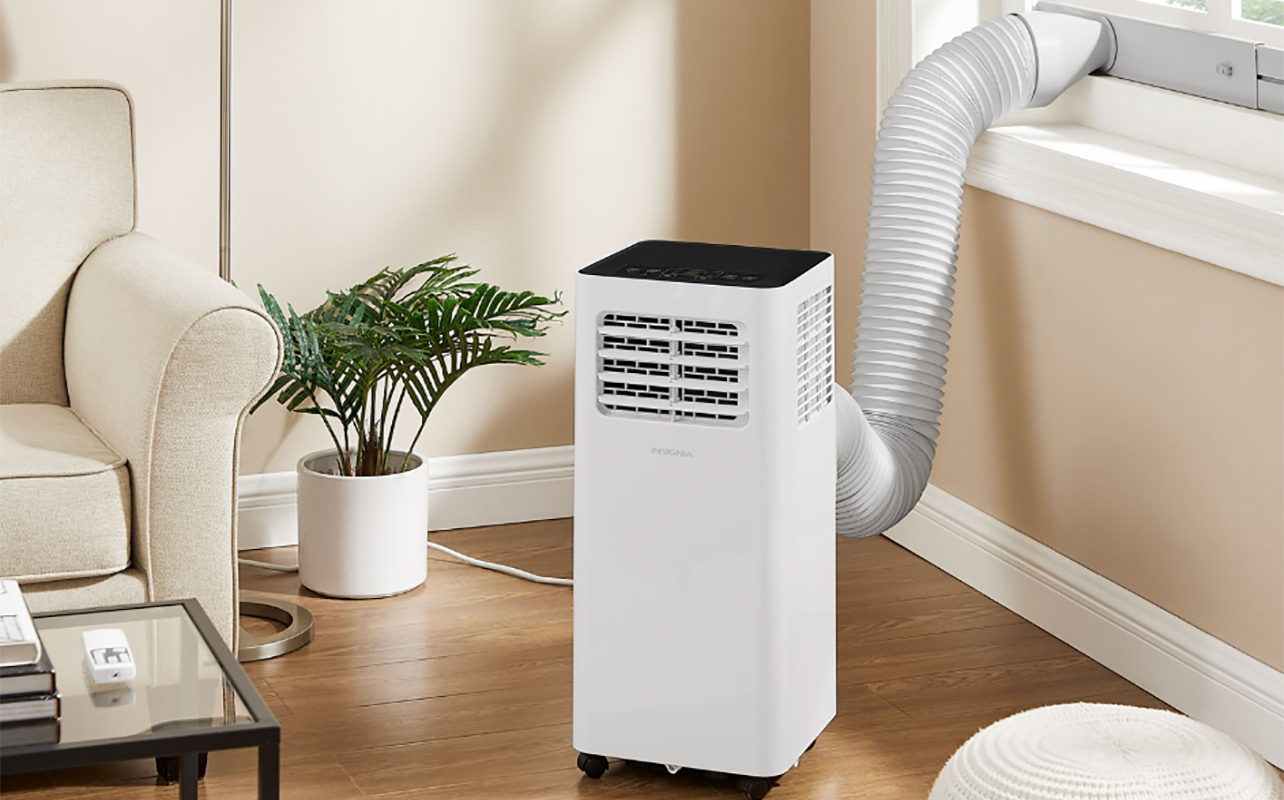
Before you reach for the phone, try these easy DIY steps. They might just get your system up and running:
Resetting the unit
Many ACs, especially central systems, have a reset button. Try turning the system off at the thermostat and circuit breaker, then turning it back on.
Cleaning filters and coils
Remove and rinse reusable filters every month (or replace if disposable). Use a vacuum or soft brush to gently clean accessible coils.
Adjusting settings and thermostat
Make sure the thermostat is set to “cool,” not just “fan.” Also, check that the temperature is set below the current room temperature.
Checking for blockages
Ensure vents are open and unblocked, hoses are connected, and drain lines are clear. Even small blockages can mess with your system’s performance.
For more help picking the right AC or understanding how it works, take a look at Best Buy’s air conditioner buying guide.
When to call a professional HVAC technician
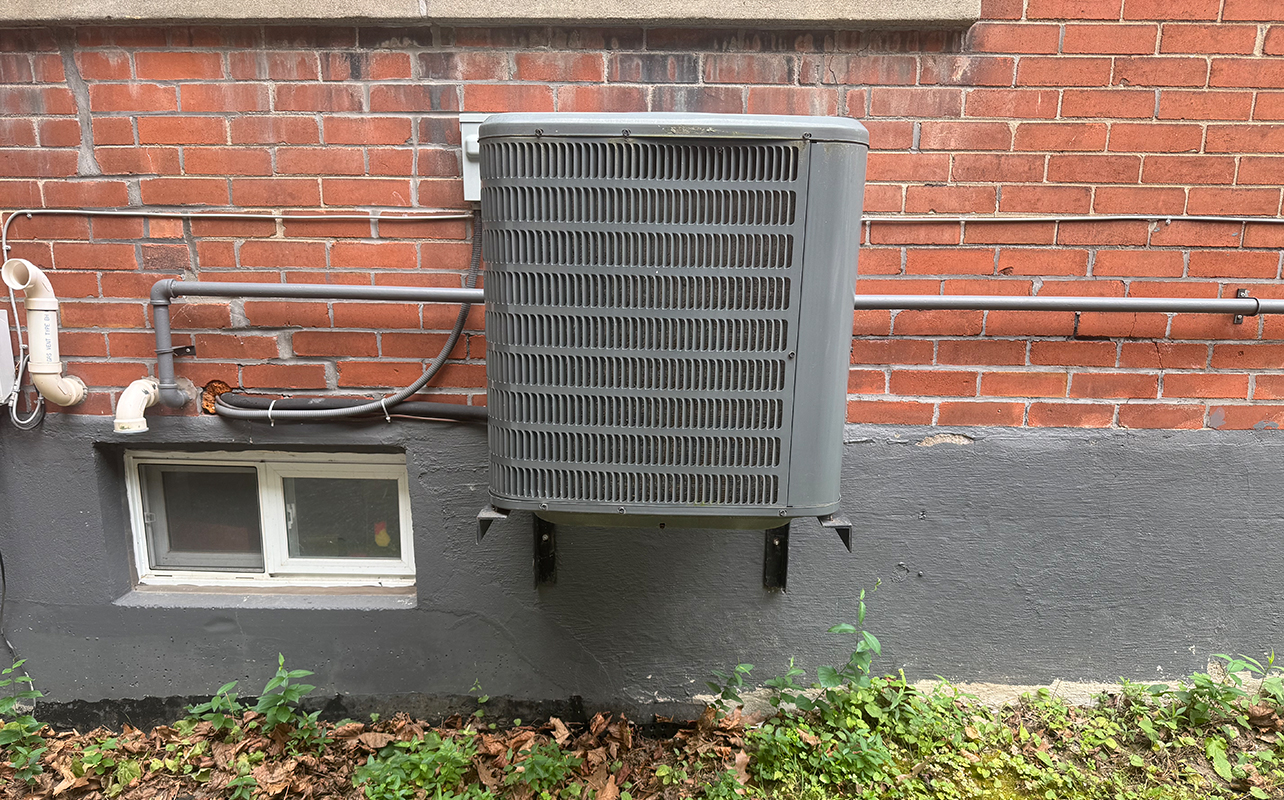
If you’ve tried the above steps and your air conditioner is not working properly, it may be time to bring in an expert. Here’s when to pick up the phone:
- The system is still not cooling after basic troubleshooting.
- You suspect a refrigerant leak (often indicated by hissing sounds or frozen coils).
- There are signs of electrical or mechanical failure (burnt smells, popping sounds, constant tripping breakers).
- Your system needs routine maintenance or deep cleaning.
If your unit is under warranty or was recently installed, it’s worth checking with the manufacturer or retailer for service options. If you’re in the market for a new one, browse air conditioners at Best Buy or explore portable AC options here. If you’re not sure what size AC you need for your space, check out this helpful guide on how to properly size your air conditioner.
How to prevent future AC issues
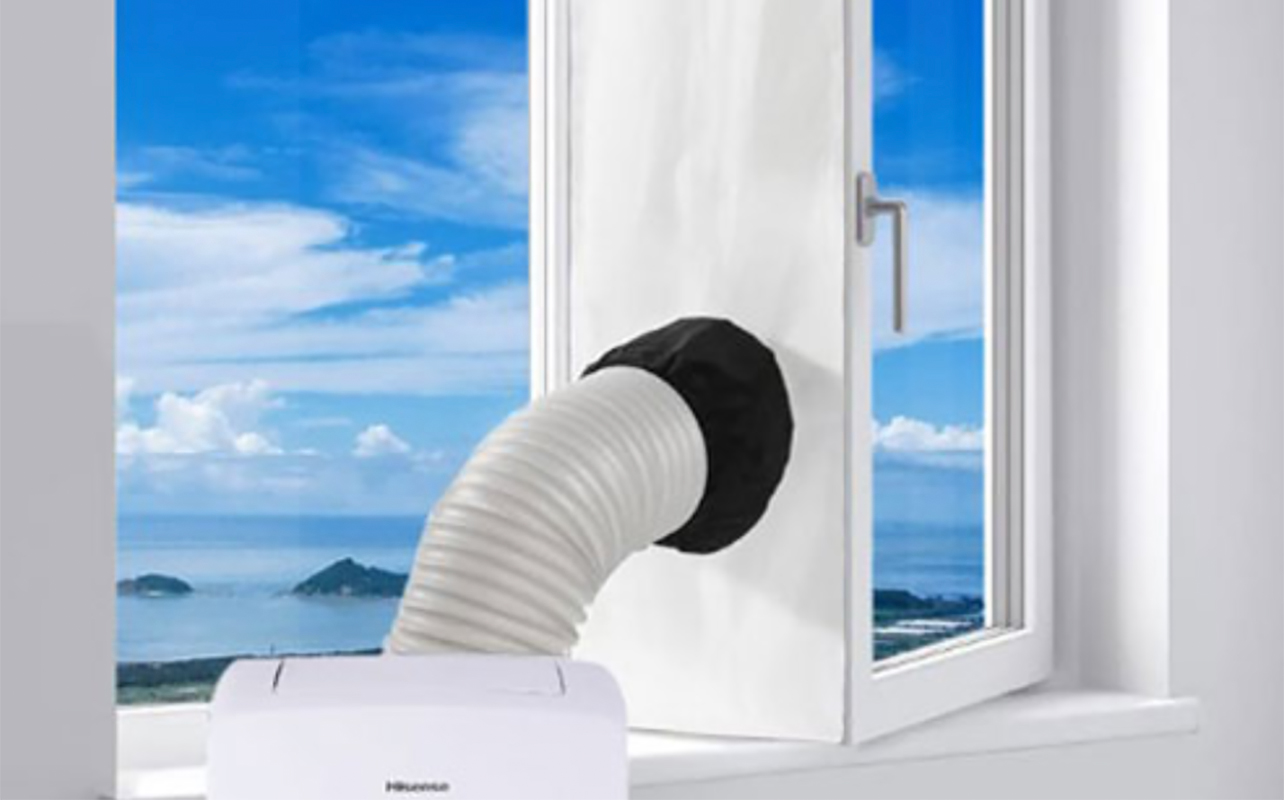
Keeping your AC running smoothly doesn’t have to be complicated. A bit of regular maintenance can go a long way:
Regular filter replacement
Replace or clean filters every 1–2 months during heavy use. This helps improve airflow and air quality.
Seasonal tune-ups
Before summer starts, have your system inspected and tuned by a professional. This can prevent problems before they start.
Cleaning intake and exhaust areas
Keep your outdoor condenser unit or portable exhaust hose clear of debris and dust to ensure proper airflow.
Keeping vents clear and unblocked
Avoid placing furniture or rugs over vents. Let the air flow freely throughout your home.
Don’t sweat it
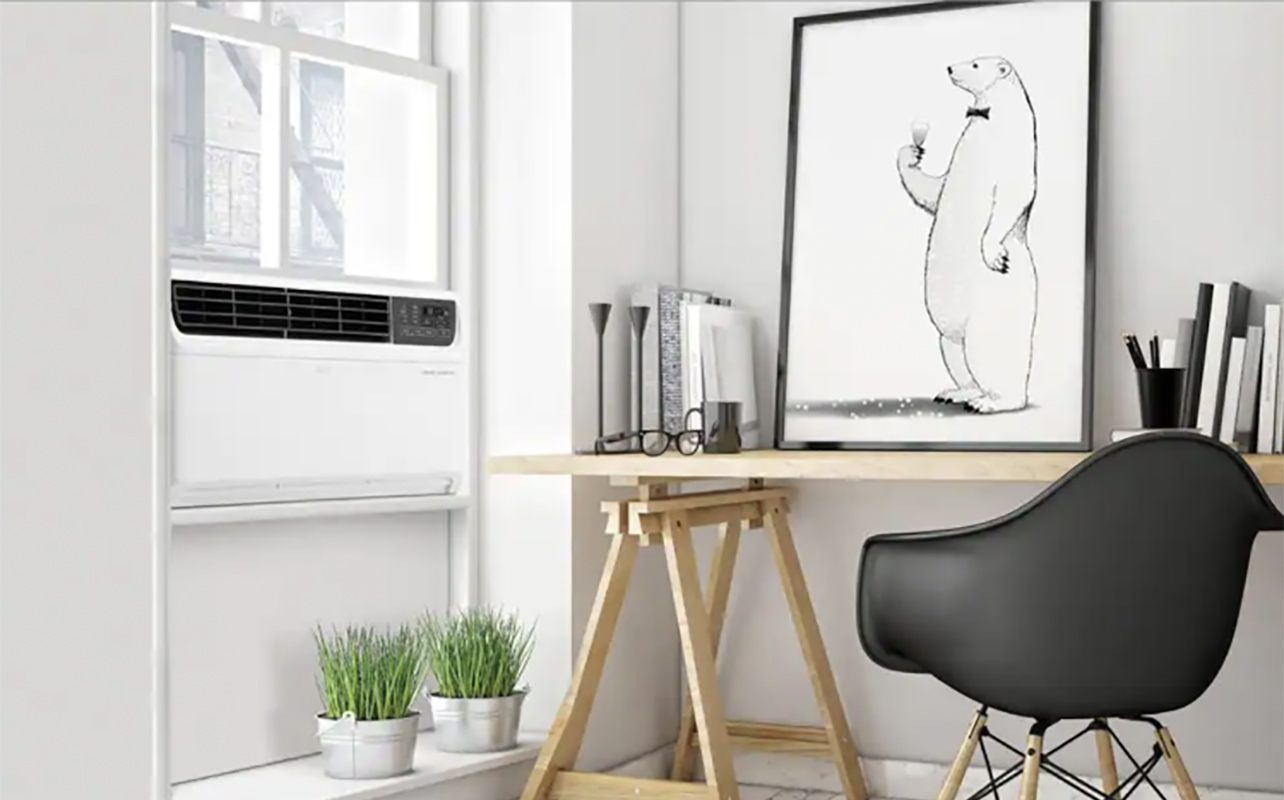
Dealing with an air conditioner not working can feel overwhelming, but many issues have surprisingly simple fixes. Whether it’s cleaning a filter, checking the thermostat, or unclogging a drain, a bit of troubleshooting might save you a service call.
That said, don’t hesitate to bring in a pro for bigger problems like refrigerant leaks or compressor failure. And if your unit is getting old or costing you more in repairs, it might be time to upgrade. Explore air conditioners at Best Buy to find a reliable, energy-efficient option for your home.
Stay cool!
This article was drafted using AI technology and then reviewed, fact-checked, and revised by a member of our editorial team.





